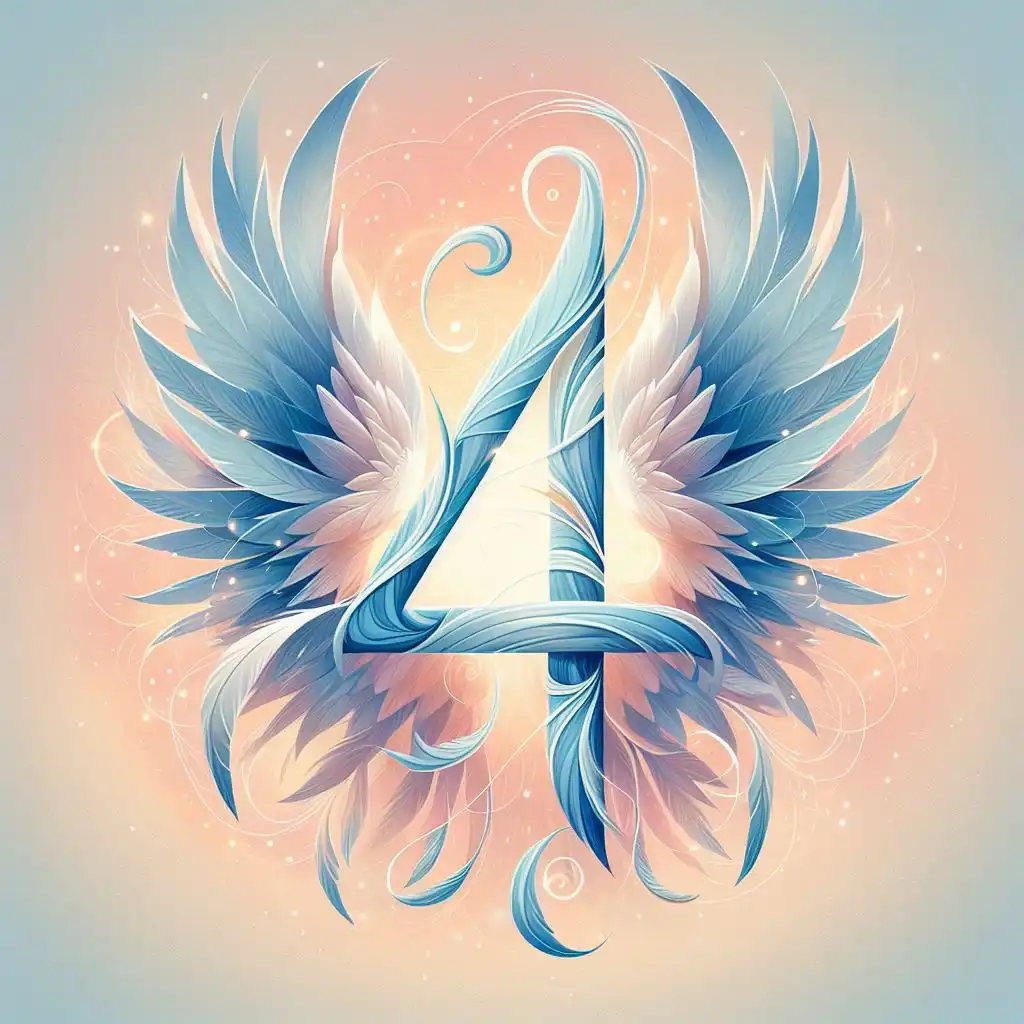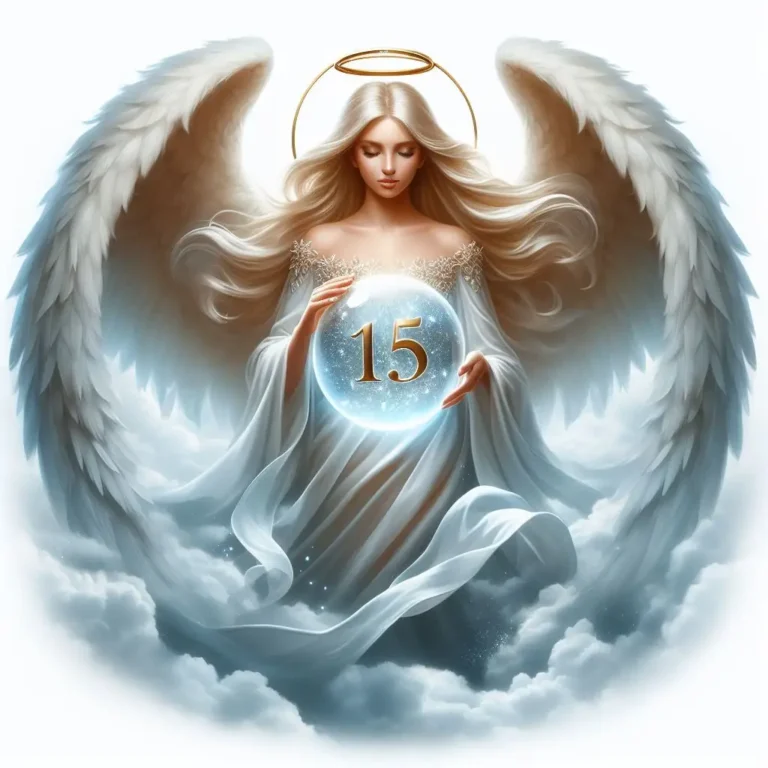4 Mean in the Bible: Unlocking Spiritual Wisdom
Have you ever noticed how the number 4 appears frequently in the Bible? From the four corners of the earth to the four horsemen of the Apocalypse, the number four holds significant spiritual wisdom and symbolism in the scriptures.
In this blog post, we will explore the various meanings of 4 in the Bible and how understanding these interpretations can help deepen your spiritual journey.
4 Mean in the Bible: A Quick Overview

Symbolism:
- Creation and Completion: The number 4 is often associated with creation and completion, as it represents the four corners of the earth, the four seasons, and the four directions.
- Stability and Structure: The number 4 is also associated with stability and structure, as it is a square number (2×2) and represents the four pillars of a building.
Biblical Significance:
- Four Gospels: The Bible contains four Gospels (Matthew, Mark, Luke, and John), which provide a complete and balanced picture of Jesus’ life and ministry.
- Four Living Creatures: In Ezekiel 1:5-14 and Revelation 4:6-8, four living creatures are described as having the faces of a lion, an ox, an eagle, and a man, representing the four aspects of God’s character.
Spiritual Significance:
- Completeness and Perfection: The number 4 is often seen as a symbol of completeness and perfection, as it represents the four dimensions of the physical world (length, width, height, and depth).
- Earthly and Spiritual: The number 4 is also associated with the earthly and spiritual realms, as it represents the four elements (earth, air, fire, and water) and the four aspects of human nature (physical, emotional, mental, and spiritual).
Additional Insights:
- Four Seasons of Life: The number 4 is often associated with the four seasons of life, representing birth, growth, harvest, and rest.
- Four Corners of the Earth: The number 4 is also associated with the four corners of the earth, representing the global and universal nature of God’s kingdom.
The Four Corners of the Earth

When the Bible speaks of the earth having four corners, it’s inviting us into a majestic vision of God’s dominion stretching far and wide, covering every inch of our world.
This symbolic expression paints a picture of completeness and universality, reminding us of a Creator whose care and presence envelop all corners of the globe. It’s a poetic way of asserting that no place is too remote, no person too distant for God’s love and sovereignty.
Through this imagery, we’re encouraged to see our planet as a cohesive whole, interconnected and under the watchful eye of the divine. This notion pushes us to recognize the vastness of God’s creation and challenges us to explore our role within this grand design.
Reflecting on this concept can inspire a profound sense of unity and responsibility towards our earth and fellow inhabitants, fostering a deeper appreciation for the intricate balance and beauty of our shared home.
The Four Seasons and Creation

The 4 seasons serve as a divine metaphor for the cycle of life and God’s intricate design in the Bible. Each season, from the refreshing renewal of spring to the quiet dormancy of winter, reflects different phases of spiritual and physical growth.
Spring bursts forth with new life, symbolizing rebirth and new beginnings. Summer, in its warmth, represents a time of growth and maturation.
Autumn brings the harvest, a period of reaping what has been sown, while winter suggests a time of rest, reflection, and preparation for the cycle to begin anew. These seasons remind us of the constant change and progression inherent in both the natural world and our spiritual journeys.
Through this ever-turning cycle, we are encouraged to embrace each season of our lives, recognizing the unique opportunities for growth and renewal they present.
The Fourth Commandment
The Fourth Commandment stands as a timeless directive, “Remember the Sabbath day, to keep it holy,” serving as a profound reminder of the rhythm between work and rest that’s foundational to human existence.
This commandment is more than an obligation; it’s an invitation to pause, reflect, and rejuvenate, fostering a space where we can reconnect with the divine and the essence of creation itself. By setting aside one day each week dedicated to rest and worship, we acknowledge the example set by God during the creation narrative—six days of creation followed by a day of rest.
This practice isn’t just about physical rest but encompasses a holistic pause, offering time for spiritual reflection, family connections, and personal growth. In a world that often celebrates constant busyness, the Fourth Commandment offers a counter-cultural call to embrace restorative rest, emphasizing its necessity for a balanced, fulfilling life.
The Four Horsemen of the Apocalypse
The Four Horsemen of the Apocalypse, depicted in the Book of Revelation, symbolize events that precede the end times, carrying profound messages about conquest, war, famine, and death. These riders on their distinct horses – white, red, black, and pale – reveal the challenges and trials humanity must face.
Their appearance is a vivid portrayal of the consequences of turning away from God, urging believers to maintain their faith and remain vigilant. The first horseman, riding a white horse, represents conquest, often interpreted as the spread of Christ’s message or the rise of antichrist forces.
The second, on a red horse, signifies war and conflict. The third, on a black horse, brings famine, symbolizing economic disparity and injustice. Finally, the fourth horseman rides a pale horse, symbolizing death and the ultimate outcome of humanity’s straying from divine paths.
Together, they serve as a powerful reminder of the importance of spiritual resilience and moral integrity in facing the trials of life.
The Four Horsemen of the Apocalypse
The Four Horsemen of the Apocalypse embody some of the most compelling and ominous symbols found in the Bible, each representing different facets of the tribulations leading up to the end times. Their emergence from the Book of Revelation captivates and warns, depicting the sequence of conquest, war, famine, and death.
These figures ride forth on horses of varying colors – white, red, black, and pale – each color signaling a different aspect of the upheavals to be faced by humanity.
Their presence in the scriptures serves as a stark reminder of the trials and tribulations that lay ahead, encouraging believers to stand firm in their faith and uphold righteousness in times of adversity.
The vivid imagery associated with the Four Horsemen challenges us to reflect on the deeper spiritual messages and the call to remain vigilant in our spiritual journey.
The 4 Horsemen of the Apocalypse
The Four Horsemen of the Apocalypse stand as one of the Bible’s most striking visions, found within the vivid and complex imagery of Revelation. These figures symbolize the series of cataclysms set to precede the end of the world.
Each horseman, distinguished by the color of his horse—white, red, black, and pale—brings a different aspect of the apocalypse: conquest, war, famine, and death. This depiction is a dramatic call to awareness and readiness, urging us to contemplate our spiritual preparedness.
The representation of these 4 horsemen challenges us to consider the resilience and strength of our faith in the face of adversity. As we delve into their symbolism, we’re invited to reflect on the profound implications of these events in our spiritual lives and the world at large.
The 4 Gospels: Matthew, Mark, Luke, and John
The 4 Gospels – Matthew, Mark, Luke, and John – each serve as a unique lens through which we view the life and teachings of Jesus Christ. Matthew presents Jesus as the promised Messiah, fulfilling Old Testament prophecies.
Mark emphasizes the actions and miracles of Jesus, portraying Him as the Servant of God. Luke offers a detailed and compassionate account, highlighting Jesus’ inclusivity towards the marginalized. John focuses on the divinity of Christ, weaving theological depth into the narrative of His life.
Together, these 4 accounts interlock to form a comprehensive picture of Jesus’ earthly ministry, providing believers with diverse insights into His character and mission.
Their collective narratives invite us to explore the multifaceted nature of Christ’s impact on the world and encourage personal reflection on His enduring message of love and redemption.
The Spiritual Significance of 4 in Biblical Prophecy
In biblical prophecy, the number 4 often heralds significant moments of divine action and the manifestation of God’s will. This numeral symbolizes not just completion and stability but also marks pivotal events that shape the course of human history.
It’s as though through the number 4, the Divine communicates the readiness for transformation or the ushering in of new chapters in the divine narrative. The recurrence of this number in prophetic contexts suggests a framework within which God’s intentions unfold, offering both a sign of hope and a call to awareness for believers.
Understanding this symbolic use of the number 4 can enrich our interpretation of biblical events and deepen our anticipation of God’s ongoing work in the world.
FAQs
Q: What is the spiritual significance of the number 4 in the Bible?
A: The number 4 is often associated with completeness, perfection, and stability in the Bible. It represents the four dimensions of the physical world and the four aspects of human nature.
Q: What are the four Gospels in the Bible?
A: The four Gospels in the Bible are Matthew, Mark, Luke, and John. They provide a complete and balanced picture of Jesus’ life and ministry.
Q: What do the four living creatures in Ezekiel and Revelation represent?
A: The four living creatures in Ezekiel 1:5-14 and Revelation 4:6-8 represent the four aspects of God’s character: justice, mercy, wisdom, and power.
Q: What is the significance of the four elements in the Bible?
A: The four elements of earth, air, fire, and water represent the physical world and the four aspects of human nature: physical, emotional, mental, and spiritual.
Q: What do the four seasons of life represent in the Bible?
A: The four seasons of life (birth, growth, harvest, and rest) represent the cycles of life and the importance of rest and renewal.
Q: What is the significance of the four corners of the earth in the Bible?
A: The four corners of the earth represent the global and universal nature of God’s kingdom, emphasizing God’s sovereignty over all creation.
Q: Is the number 4 considered a sacred number in the Bible?
A: Yes, the number 4 is considered a sacred number in the Bible, representing completeness, perfection, and stability.
Q: How does the number 4 relate to the concept of creation in the Bible?
A: The number 4 is associated with creation and completion, as it represents the four corners of the earth, the four seasons, and the four directions.

Liza Stockholm is an esteemed spiritual guide and the visionary behind Spiritual with Liza. With a profound passion for empowering others on their spiritual journey, Liza offers a blend of educational content and personal guidance. Her expertise in spirituality is rooted in years of dedicated practice and study, making her a trusted companion for those seeking enlightenment and inner peace.







